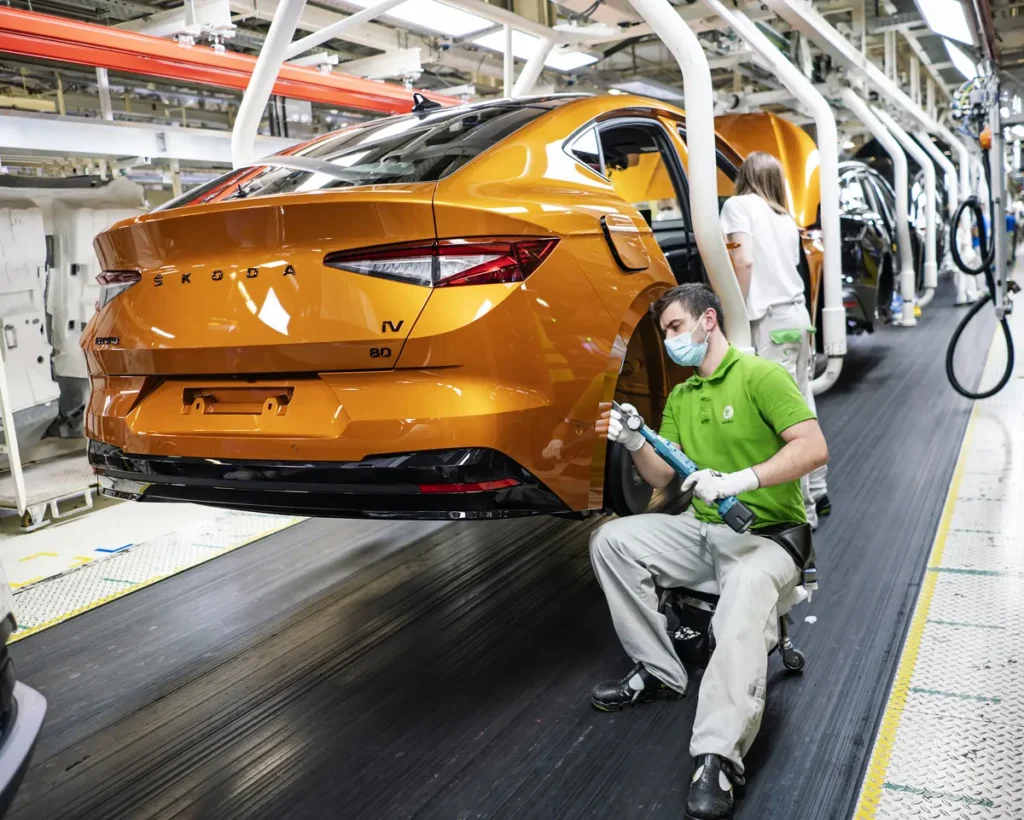Representatives of automotive companies expect new cars to become more expensive in Poland within a year. The largest group (33%) indicates a maximum increase of 5% in car prices, although almost the same number (28%) of respondents expect price increases in the 11-20% range. A total of 81% of automotive representatives expect car prices to rise by 1-20%, according to Exact Systems’ report „MotoBarometer 2022: The mood in automotive in Europe”.
Pandemic and war have raised the cost
– Higher vehicle production costs are the most frequently mentioned outcome of the COVID-19 pandemic and the war in Ukraine by representatives of the Polish automotive industry. In this year’s Exact Systems report “MotoBarometer 2022: The mood in automotive in Europe”, such an answer was given by 67% of respondents. It will be felt most by drivers, because according to those surveyed, cars will leave Polish showrooms up to 20% more expensive within a year. As a result, more Poles will postpone replacing their 'four wheels’ with another model (68% of indications), consider buying a used vehicle (31%) or give up their own car in favor of carsharing or public transportation (24%), the release reads.
Resources and inflation
As a result of the COVID-19 pandemic and the war in Ukraine, automotive has been most affected by the rising cost of raw materials needed to produce parts or components, as well as costs related to inflation. In 10 out of 11 countries surveyed, both were in the TOP3 of indications. In Poland, such answers were given by 61% and 44% of respondents, respectively, and 58% indicated the cost of utilities, including energy, gas and water.
To the question „What has the pandemic and war permanently changed in the automotive industry?” in 7 out of 11 countries surveyed, including Poland (62%), representatives of automotive companies most often answered that the vehicles produced will be more expensive.
Waiting time and rising prices
Representatives of automakers in Poland, when asked about the most important consequences that drivers will experience, most often pointed to long waiting times for cars (61%), higher prices (48%) and higher fuel costs (43%). A similar set of consequences was indicated by respondents in other countries surveyed.
According to 81% of auto industry representatives, car price increases will range between 1-20%, with 33% of respondents indicating a maximum car price increase of 5%, 20% of respondents indicating an increase of 6-10%, and 28% of respondents indicating an increase of 11-20%. One in ten respondents is more pessimistic and expects increases of 20%-50%.
Auto investment postponed
In this year’s report, Exact Systems also asked about the „motobehaviour” that a pandemic or war causes among Poles. 2 out of 3 automobile company representatives questioned believe that more customers are now postponing the replacement of their vehicle with a new model (68%), and one in three believes that Poles are more likely to buy „second-hand” vehicles (31%). These two responses lead to a sad conclusion – Polish roads will get even older. One in five respondents indicated that as a result of current socio-economic events, more people will consider buying an e-car (21%).
The survey ” MotoBarometer 2022: The mood in automotive in Europe'” was conducted by Exact Systems on a targeted sample of representatives of companies in the automotive sector. Among them are car manufacturers, sub-suppliers of Tier I and Tier II automotive parts and components, such as wipers, windshields, roofs, steering columns or safety components. The sample size was 989 respondents from 11 countries (Poland, Belgium, Czech Republic, Spain, Netherlands, Germany, Portugal, Romania, Slovakia, Turkey, Hungary). The respondents were representatives of automotive factories, including OEMs and Tiers, and in particular quality engineers, factory directors, quality and production managers. The survey was carried out using the method of telephone interviews (CATI), online surveys and individual questionnaires between May and July 2022.
